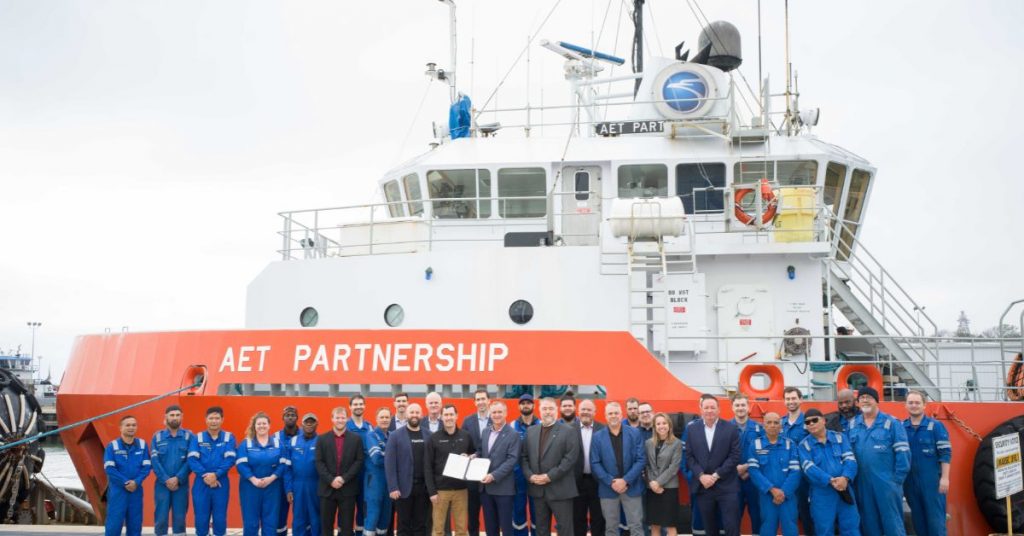AET, a leading owner and operator of maritime transportation assets and specialised services, has signed an agreement with Fleetzero, a developer and manufacturer of modular marine batteries for hybrid and electric ships, to develop the world’s longest-range plug-in hybrid-electric vessel.
Under the agreement, one of AET’s Lightering Support Vessels (LSV) will be retrofitted with a plug-in hybrid-electric system. The vessel will operate primarily on battery power, reducing greenhouse gas emissions by ~82% when compared to conventional LSVs on a tank-to-wake basis. This is estimated to avoid 1,220 tonnes of greenhouse gases, significantly reducing fuel consumption and maintenance costs while maintaining high safety standards.
“This partnership marks a pivotal step in our decarbonisation journey and energy transition strategy. We are proud to partner Fleetzero in developing the world’s largest plug-in hybrid-electric LSV, reinforcing our commitment to innovative and sustainable solutions in the maritime industry,” said Mr Zahid Osman, President & Group CEO of MISC Group. “By integrating plug-in hybrid electric solutions into our fleet, we are transforming ambition into action to deliver more energy with less emissions. This pilot project also allows us to evaluate the feasibility and operational performance of this technology, paving the way for potential deployment across AET’s and potentially MISC’s fleet.”
Tags: AET, Electric Vessel, Hybrid Vessel, LSV



Recent Posts
FRV Partners with Envision Energy on Green Ammonia Project in Brazil
Hamburg Trials HVO 100 Biofuel for Port Fleet as Interim Decarbonization Measure
CUMTA considers water metro linking ECR and Napier bridge
BSM unveils methanol bunkering simulator to equip seafarers for greener shipping
DPA commissions India’s first Make-In-India green hydrogen plant at Kandla
Port of Tauranga to Trial New Zealand’s First Fully Electric Straddle Carrier
OceanScore Crosses 2,300-Vessel Mark as Demand for Compliance Solutions Grows
HD Hyundai and H-Line Shipping Collaborate on AI-Powered Autonomous and Eco-Friendly Vessel Technologies